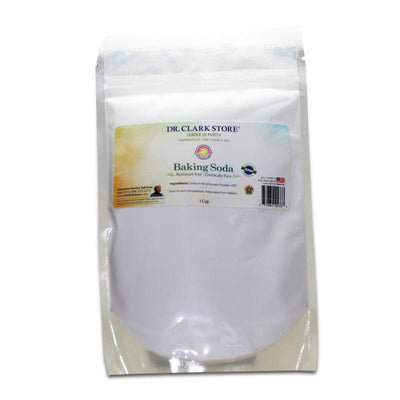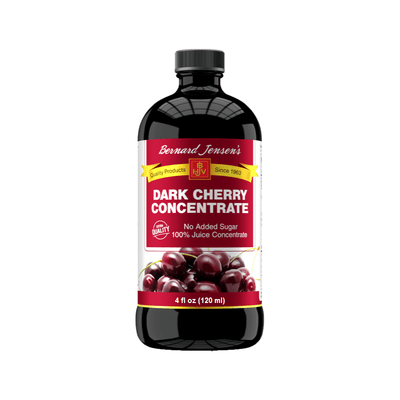Current State of Our Food Supply: Recalled Products and Toxins in Fast Food

In today's fast-paced world, where convenience often takes precedence over health considerations, it's crucial to be aware of the current state of our food supply. From widespread product recalls to the presence of toxins in fast food, consumers are faced with a myriad of challenges when it comes to making informed choices about what they eat.
Product recalls have been increasing at a steady rate, doubling from 2018 to 2022. (1).
Top Recalled Products
Product recalls have become alarmingly common in the food industry, shaking consumer confidence and raising questions about food safety protocols. Some of the top recalled products in recent years include food and beverages (64%), pharmaceuticals (25%):
- Contaminated Produce: Fruits and vegetables contaminated with pathogens like E. coli and Salmonella have led to numerous recalls, impacting both fresh produce and packaged salads.
- Tainted Meat: Instances of tainted meat, whether due to bacterial contamination or improper handling during processing, have resulted in significant recalls across various meat products.
- Dairy Contamination: Dairy products such as milk, cheese, and yogurt have also been subject to recalls due to contamination with harmful bacteria or improper pasteurization.
- Allergen Mislabeling: Mislabeling of allergens like nuts, soy, and gluten has triggered recalls of a wide range of food products, posing serious risks to individuals with allergies.
- Canned Goods: Issues related to faulty canning processes leading to bacterial growth or foreign objects in canned goods have necessitated recalls to prevent consumer harm. Best avoided for the presence of BPA, BOS or other toxic chemicals used in can linings.
Toxins in Fast Food
The allure of fast food lies in its affordability, convenience, and taste, but beneath the surface, these foods often harbor hidden toxins that can negatively impact health. Some common toxins found in fast food include:
- Trans Fats: Widely present in fried and processed fast food items, trans fats are known to increase bad cholesterol levels and raise the risk of heart disease. Fast food contains the highest amounts of trans fats and highly oxidized omega-6 oils, which are already highly unstable and damaged during processing.
- Sodium: Fast food is notorious for its high sodium content, which can contribute to hypertension, stroke, and other cardiovascular issues when consumed in excess. Dr. Brownstein states that processed table salt never be consumed, and recommends only sea salt with naturally containing iodine.
-
Acrylamide: Acrylamide forms in starchy foods when cooked at high temperatures, such as in fried fast foods. This highly toxic compound has been classified as a potential carcinogen, prompting concerns about its presence in popular fast food items like French fries and potato chips, which contain the highest amounts. The amount of acrylamid is directly proportional to the brown color seen in toasted bread, hashbrowns, and bread crust, all of which should be avoided.
-
Mycotoxins: Molds and fungi produce secondary metabolites known as mycotoxins. They are highest in cereal, corn, soybeans, peanuts, and many dried herbs and spices. They have been found to have carcinogenic, hepatotoxic, and immuno-suppressing effects (2).
- Additives and Preservatives: Fast food often contains a cocktail of artificial additives and preservatives to enhance flavor, texture, and shelf life, some of which have detrimental effects on health with long-term consumption.
- Hazardous Chemicals: From phthalates in packaging materials to acrylamide formed during frying processes, fast food can expose consumers to a range of hazardous chemicals that raise concerns about long-term health impacts.
- Pesticide Residues: Ingredients sourced for fast food items may carry pesticide residues, potentially adding another layer of toxins to an already concerning nutritional profile.
The Dangers of Artificial Colors and Excitotoxins like MSG in Our Food
"Excitotoxins have been found to dramatically promote cancer growth, metastasis, and the invasion of surrounding tissues." - Dr. Russell Blaylock (3).
In today's fast-paced world, convenience often takes precedence over health, leading to a rise in the consumption of processed foods laden with artificial colors and excitotoxins. These additives, while enhancing the visual appeal and taste of our food, come with a host of potential dangers that are often overlooked. It is crucial to delve into the detrimental effects these substances can have on our bodies and make informed choices about what we put into our systems.
Understanding Excitotoxins
Excitotoxins are substances that overstimulate nerve cells, leading to cell damage and even cell death. One of the most well-known excitotoxins is MSG (monosodium glutamate), often used as a flavor enhancer in a wide range of processed foods. Consuming high levels of excitotoxins has been linked to various health issues, including migraines, seizures, brain damage, and neurodegenerative diseases.
Artificial Colors and Their Impact
Artificial colors are pervasive in the food industry, making products visually appealing and enticing to consumers. However, many of these synthetic colors have been associated with adverse effects on health. Studies have shown a potential link between artificial colors and behavioral issues in children, such as hyperactivity and attention deficit disorders. Furthermore, some artificial colors have been linked to allergic reactions and may contain carcinogenic compounds.
Hidden Dangers in Everyday Foods
It's alarming to discover that many everyday items in our grocery stores contain these harmful additives without us realizing it. From candies and sodas to processed snacks and even certain medications, artificial colors and excitotoxins lurk in unsuspecting products, potentially impacting our health in ways we may not immediately recognize.
Making Informed Choices for a Healthier Future
As consumers, we hold the power to influence the food industry by making conscious decisions about the products we purchase and consume. Opting for whole foods, fresh produce, and products with natural ingredients can significantly reduce our exposure to artificial colors and excitotoxins. Reading labels diligently, educating ourselves about common food additives, and advocating for transparent labeling practices can help us navigate the complex landscape of processed foods.
Conclusion
Dr. Russell Blaylock's words serve as a stark reminder of the hidden dangers present in our food supply. By raising awareness about the risks associated with artificial colors and excitotoxins, we empower ourselves to make informed choices that prioritize our health and well-being. Let us strive to cultivate a culture of mindful eating, where the quality and integrity of our food take precedence over convenience and aesthetics. Together, we can pave the way for a healthier future free from the hazards of unnecessary additives.
In light of these issues, it's essential for consumers to stay informed, read labels, and make conscious decisions about their food choices to mitigate the risks associated with toxins in fast food and the prevalence of recalled products in the market.
Sources
1). Merelli, Annalisa. (2023). Why FDA Product Recalls have Spiked in REcent Years.
2). Alshannaq, A., & Yu, J. H. (2017). Occurrence, toxicity, and analysis of major mycotoxins in food. International journal of environmental research and public health, 14(6), 632.
3). Blaylock, R. L., & Weiner, T. (2011). Excitotoxins: the taste that kills (p. 264). Blackstone Audio, Incorporated.




Hi Beverly, thanks for your question. None of our products contain silicon dioxide, nor any other filler or flow agent, like magnesium stearate. Dr. Clark recommended only the purest, freshest ingredients, knowing that potency is key, and that elimination of even trace amounts of toxins is critical for many patients with chronic disease. All of our products therefore go through rigorous, redundant testing to ensure they are the safest available.
Have found alot of supplement companies are formulating their supplements, with silicon dioxide as is a non-caking agent, which is detrimental for folks w/liver issues-do any if your products have this controversial additive?
I have also found that round up is present in our food. I now buy organic but that probably isn’t always the answer either . Buy local and find out what they use to spray!!
Leave a comment